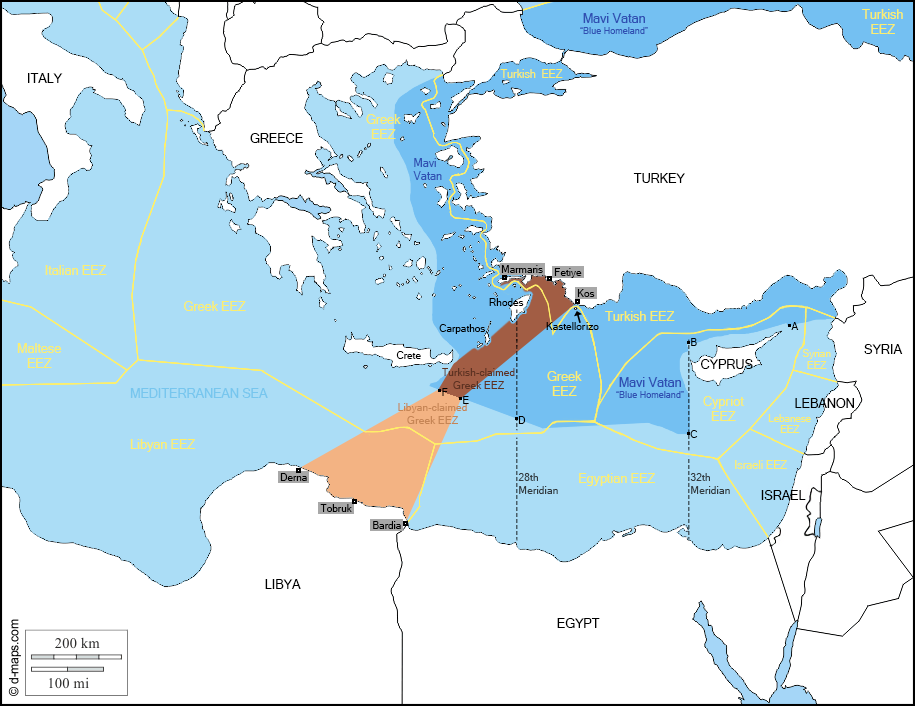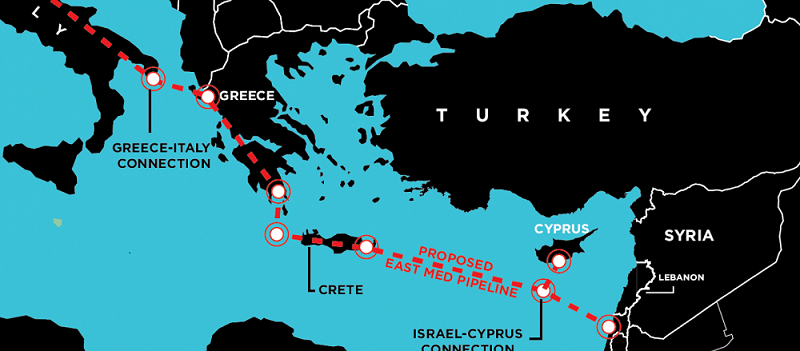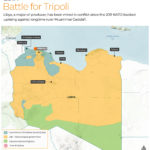The well-orchestrated Arab Spring that toppled many a government in a few countries also hit Libya, a country that for forty-two years was under the rule of Muammar Gaddafi, under whose governance the country’s people counted as the most prosperous in the whole of Africa. The ensuing and up to now incessant civil war created a power vacuum with various players vying for control over the country, which is rich in crude oil and natural gas. From the almost ten years of strife there have emerged two major rivals: the Tripoli-based Government of National Accord (GNA) and the Tobruk-based House of Representatives (HOR). The former is supported by Turkey and the United Nations, which by the way helped form the GNA, while the latter is backed by Russia, United Arab Emirates, Saudi Arabia and Egypt.
Turkey’s chip in the game appeared to have turned the scales in favour of the GNA. Up to Ankara’s involvement the Libya National Army (LNA) commanded by General Khalifa Haftar, the supporter of the HOR, had conquered most of the country and was about to advance on Tripoli. Turkish intervention came just in time to save the GNA and repulse LNA’s approaching units back to their previous positions. Why is Ankara interested in the region?
Libya (i.e. the provinces of Tripolitania, Fezzan and Cyrenaica put together) for centuries used to be a part of the Ottoman Empire, so naturally Turkey’s policymakers gravitate to the regions where Turkish rule has historical precedent. They are trying to extend their influence in the Balkans – in Bulgaria and Bosnia and Herzegovina with their significant Muslim or Turkish minorities, in Albania, which is predominantly Muslim – in Azerbaijan in the Caucasus, in Syria and Iraq and lately in Libya. Turkey under President Recep Tayyip Erdoğan has been more and more intensively making attempts at expanding its international leverage and freeing itself from the constraints imposed on it by the Western powers after the First World War, especially in the form of the 1923 Treaty of Lausanne, which limits Ankara’s control over the Bosporus and Dardanelles Straits and thus its sovereignty. In an attempt to shake off these restrictions, Turkey has elaborated and been implementing the doctrine of the Blue Homeland (Mavi Vatan)) which envisages the expanding of the country’s maritime exclusive economic zones.

Turkey-Libya Agreement on Maritime Boundaries, Turkey’s Blue Homeland (Mavi Vatan) and the EEZ boundaries in East Mediterranean. Source: reddit.
Which in a nutshell means that Ankara regards large areas of the the Black, Aegean and Mediterranean Seas – which surround Asia Minor from the North, West and South – as its spheres of influence , otherwise known as exclusive economic zones. This puts Ankara on a collision course with neighbouring Greece and Cyprus, so much so that Greece possesses very many islands just a few miles off Turkey’s western seaboard. Adding fuel to the fire, the heirs to the Ottoman Empire struck a deal with Libya’s Tripoli-based GNA, in which it was agreed that Libya’s and Turkey’s exclusive economic zones extend so far into the Mediterranean as to border on each other and that Turkey is entitled by the GNA to control Libya’s waters. Obviously, President Recep Tayyip Erdoğan has set his sights on the Libyan oil fields because Ankara’s control over them would significantly make Turkey independent of energy supplies from Russia, Iran and Iraq. A pipeline from eastern Libya to south-western Turkey would be of enormous strategic importance.
This move has, however, clashed with the remaining Mediterranean players who, naturally, have other plans. Greece, Cyprus and Israel signed an agreement of laying their pipeline across the Eastern Mediterranean. Thus the champions of the interests of Ankara and those of Athens, Nicosia and Tel Aviv have crossed their swords: figuratively for the time being. Also Italy will benefit from the pipe while France – historically – regards the Mediterranean as its backyard. Ankara’s move ruffled Egypt’s feathers: the country’s parliament empowered the authorities to undertake a military intervention in neighbouring Libya if the situation there unfolds in ways that Cairo may regard as threatening its national interests. Capturing the City of Sirte will be viewed as the red alert. Thus the conflict between Western (GNA) and Eastern (HOR) Libya may soon morph into a clash between Turkey and Egypt.

Greece, Israel, Cyprus To Sign EastMed Pipeline Deal. Source: Shipping Herald.
If Turkey manages to control Libya, ousting its rivals from the region, it can, as said above, have access to oil and gas so needed by its developing economy. It can also amplify its pressure on the European Union since then Ankara will be in control of two (through Turkey and the Balkans plus Libya) out of three routes along which the Third World people flock to the Old Continent. It could extort money from impotent European leaders in return for keeping the human masses away from the Western World. One should not forget about a numerous Turkish minority in Germany, Belgium and the Netherlands, a minority that preserves its loyalty to the homeland of origin rather than to the countries whose citizenship they hold. Turkey’s military might is rising: the country has overseas bases in Azerbaijan, Iraq, Syria, Sudan, Somalia, Albania and now Libya. This year it is about to make its first aircraft carrier – the TCG Anadolu – operational. This is to be coupled with the resolve to use that military might: recently, a French warship was virtually chased away by a Turkish vessel from the area off the Libyan coast.
At present, Turkey has its tentacles in Libya, northern Syria and Iraq, northern Cyprus and in Albania. It also exercises a lot of soft power in the Balkans. These are precisely the territories that once were ruled by the Ottoman Empire. It is not very much likely that President Recep Tayyip Erdoğan or his successors will reconstruct the territorial reach of the Sublime Porte in that these regions will be incorporated into one superstate with Ankara as its capital. Rather, Turkey is aiming at creating a ring of dependent states on the model of the German Mitteleuropa, Germany’s and France’s European Union or the Soviet Union’s Comecon. Such are today’s superpowers and such is going the be the revived Ottoman Empire.





One comment on “The Ottomans Are Coming!”
What?!
The author hasn’t ecnomic knowalndge (trade balance Turkey -North Africa, Turkey – Russia, Turkey-China).